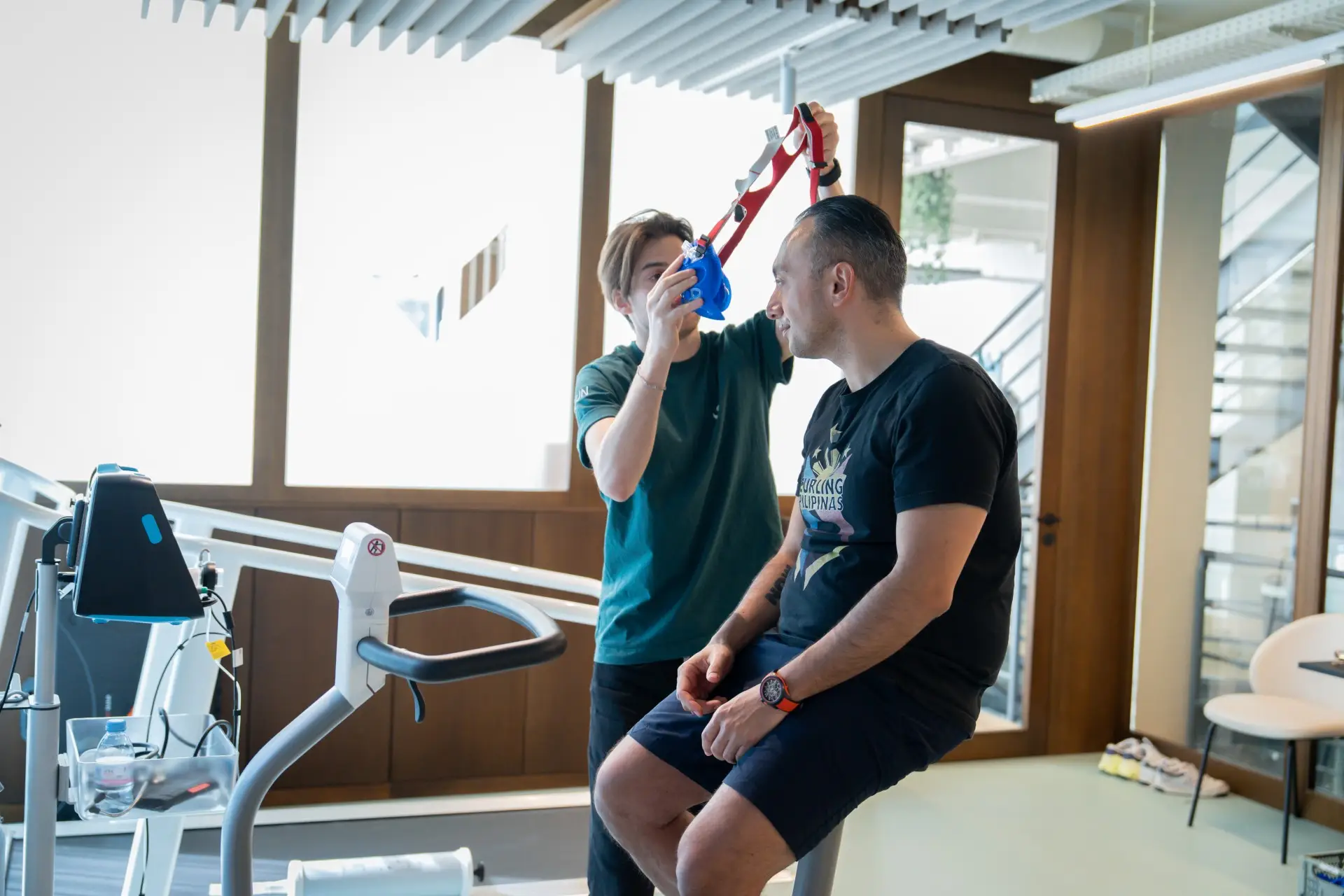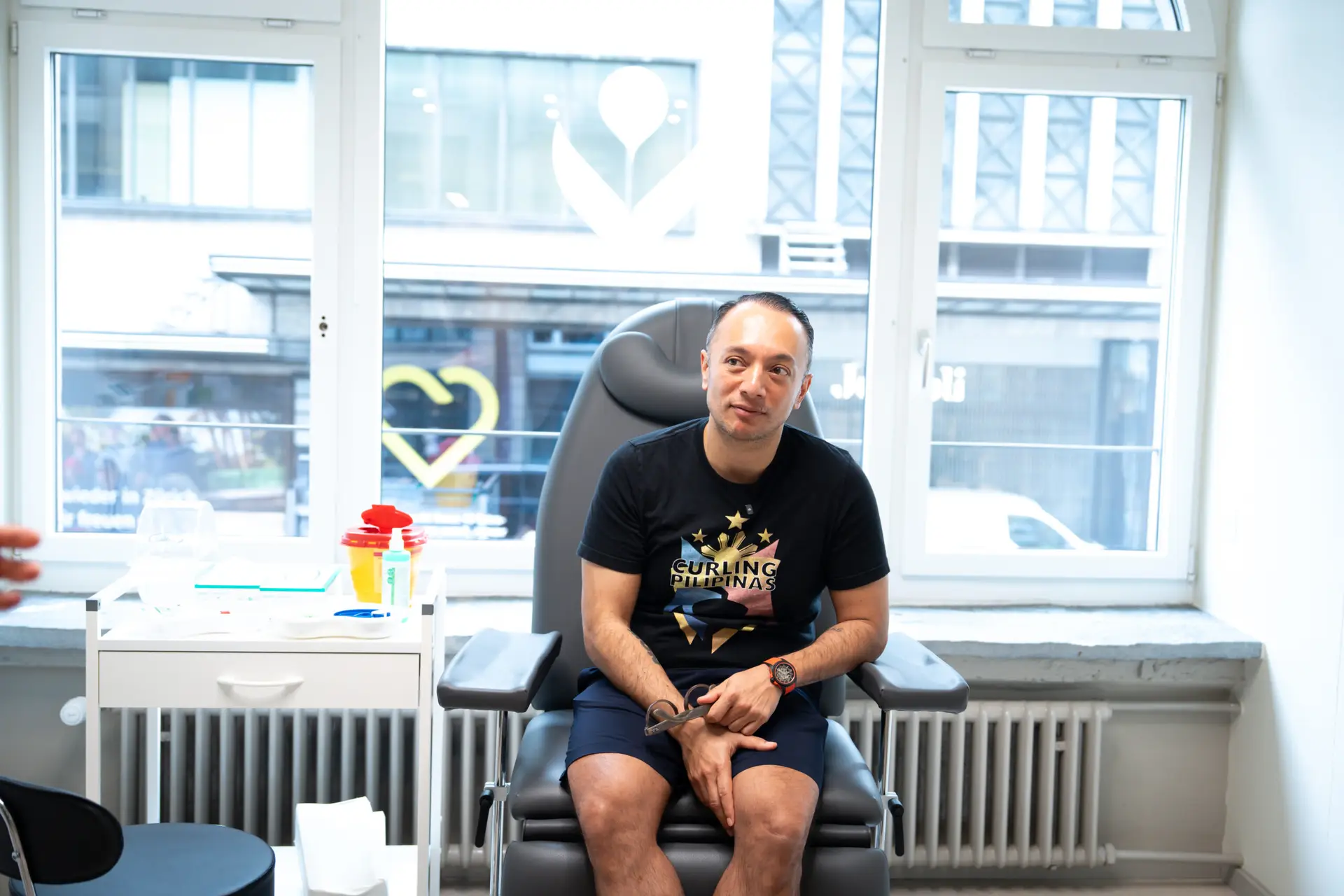AYUN’s Longevity Score explained: what it is and how it works

Now more than ever before, we have greater control over our own health outcomes.
The greatest challenge of modern health is the growing difference between what is considered ‘normal’ and what is actually healthy. The rates of chronic disease and associated deaths are continually growing. This means that as each year passes, it is becoming more and more ‘normal’ to experience chronic disease and its life-limiting effects.
The tests used to identify these risks still use large ranges of what is considered average, and the threshold for disease risk is very low and usually too general.
Healthcare still relies on treatment instead of prevention because it struggles to detect early markers that could help stop diseases before they progress.
AYUN believes in aspiring to something greater. Optimizing for a life that is above average. Optimizing for your health in the here and now, but also optimizing for a longer lifespan. One without chronic disease and with the best possible quality of life for the longest time possible.
Longevity medicine is a complex subject. Testing for longevity and risk of disease involves a wide range of assessments ranging from bloodwork and biomarkers, to psychological screening and cardiovascular fitness. It can be overwhelming to interpret all of the data required to build a complete picture of longevity.
AYUN has created the solution: a Longevity Score that analyzes the comprehensive range of biomarkers and creates a unique health score—a single figure to quantify your current health status and guide you on your longevity journey.
This article explains what the key longevity assessments are, why they are so important, and how AYUN uses this information to create a personalized health score.
The AYUN Longevity Score: what does it mean?
Every person is unique, with their own genetic profile and set of lifestyle and social circumstances. This combination of factors determines a person’s longevity profile.
AYUN offers a complete range of health diagnostics to form a longevity report. Front and center of the results is the single most important number - the Longevity Score.
The AYUN Longevity Score is developed based on the latest scientific literature on longevity to show you where you stand on your journey to a healthy, long life. This score integrates the 15 most important individual biomarkers, carefully selected and weighted according to their proven value in studies. The final score is adjusted to the respective reference values of your age and gender group.
The 15 biomarkers demonstrate several domains of health and give an overall picture of your health status.
Biomarkers
Bloodwork and biomarkers provide concrete numbers showing the correlation between health and disease risk [2]. For example, insulin resistance (IR) is associated with metabolic disease and biological aging. The HOMA (Homeostasis Model Assessment) test can accurately reveal a person’s IR [3]. HbA1c reflects average blood glucose levels over the past two to three months, making it a reliable indicator for assessing glycemic control. Elevated levels of these biomarkers are associated with diabetes and metabolic syndrome, both of which can shorten healthspan.
Body Composition Testing
An overview of your body composition gives a valuable insight into your health. Excess visceral fat (fat surrounding internal organs) is linked to inflammation, insulin resistance, and cardiovascular disease, meaning it is associated with reduced longevity [5]. Reduced visceral fat is correlated with better metabolic health and a longer healthspan. Bone density is also tested during the scan and identifies the risk of fracture and frailty.
Physiological Tests (VO2 Max)
Vo2Max is currently the greatest predictor of lifespan. Higher VO2 max levels indicate better cardiovascular fitness and a better response to stress. Higher VO2 max levels are strongly associated with lower risk of chronic diseases like heart disease [6].
Mental & Emotional Health Screening
Chronic stress and mental health have been strongly linked to biological aging [1]. Psychological factors influence everything from hormones and sleep to digestion and cognition. They are a key element in predicting longevity.
We aspire to help you achieve the very best for yourself, and your first Longevity Score is the beginning of your longevity journey. If you are within our respective reference values for each biomarker, you will achieve a score of 100 points. If you are significantly better than expected for your age group, you can even achieve more than 100 points.
We want our members to be better than average, and we provide the guidance to get you there through AYUN’s recommended treatments and lifestyle protocols.
Your unique score is a great way to follow your progress. After receiving a comprehensive analysis of the score and additional biomarkers and tests in the Longevity Check-up, our team of expert doctors will prepare a personalized protocol to target multiple aspects of your health and follow you on your journey.
The personalized longevity plan is accompanied by scientifically backed treatments offered by AYUN, which could be recommended based on your longevity priority and Longevity Score.
Health interventions
- Supplement Recommendations
- Personalized Exercise Programs
- Stress Management Techniques
- Sleep Protocols
Advanced technologies
- Hyperbaric Oxygen Therapy (HBOT)
- Cryotherapy
- Red Light Therapy
- Contrast Therapy (hot/cold)
As you incorporate the interventions and protocol into your everyday life, you will feel better, sleep better, look better, and think better. Your unique Longevity Score will reflect that.
We track the Longevity Score on a longitudinal basis, offering a follow-up re-testing for each member of AYUN. With each positive action you take through time, you should see that your AYUN Longevity Score increases.
Longevity medicine is the future of healthcare because it changes the focus from treatment to prevention. A proactive approach to health offers the best short and long term outcomes. The only way to accurately predict and prevent illness and disease is through personalization and knowing which individual key health factors to target and how to address them.
Conclusion
AYUN’s mission is to help you optimize for a longer, healthier life.
We discuss the difference between the health outcomes of the ‘average’ population and what it could be like if optimized. Normal population is at very high risk of chronic disease, but personalized and proactive health interventions can influence this.
We know that interpreting large amounts of data can be overwhelming, time-consuming, and confusing for you. However, AYUN’s single Longevity Score simplifies the data into one easy-to-understand number.
AYUN’s team of longevity experts use this Longevity Score and take a deeper dive into its components to create a completely personalized treatment plan.
The Longevity Score is the beginning of optimizing for your best and longest life.
Get your personal Longevity Score by completing the AYUN Check-up and start improving your health today.
- Galkin, F., Kochetov, K., Koldasbayeva, D., Faria, M., Fung, H. H., Chen, A. X., & Zhavoronkov, A. (2022). Psychological factors substantially contribute to biological aging: evidence from the aging rate in Chinese older adults. Aging, 14(18), 7206–7222. https://doi.org/10.18632/aging.204264
- Yang, J., Lu, J., Miao, J., Li, J., Zhu, M., Dai, J., Ma, H., Jin, G., & Hang, D. (2023). Development and validation of a blood biomarker score for predicting mortality risk in the general population. Journal of translational medicine, 21(1), 471. https://doi.org/10.1186/s12967-023-04334-w
- Yang, H., Gong, R., Liu, M., Deng, Y., Zheng, X., & Hu, T. (2023). HOMA-IR is positively correlated with biological age and advanced aging in the US adult population. European journal of medical research, 28(1), 470. https://doi.org/10.1186/s40001-023-01448-1
- Westerman, K., Reaver, A., Roy, C., Ploch, M., Sharoni, E., Nogal, B., Sinclair, D. A., Katz, D. L., Blumberg, J. B., & Blander, G. (2018). Longitudinal analysis of biomarker data from a personalized nutrition platform in healthy subjects. Scientific reports, 8(1), 14685. https://doi.org/10.1038/s41598-018-33008-7
- Yan, B., Yang, J., Zhao, B., Wu, Y., Bai, L., & Ma, X. (2021). Causal Effect of Visceral Adipose Tissue Accumulation on the Human Longevity: A Mendelian Randomization Study. Frontiers in endocrinology, 12, 722187. https://doi.org/10.3389/fendo.2021.722187
- Mandsager, K., Harb, S., Cremer, P., Phelan, D., Nissen, S. E., & Jaber, W. (2018). Association of Cardiorespiratory Fitness With Long-term Mortality Among Adults Undergoing Exercise Treadmill Testing. JAMA network open, 1(6), e183605. https://doi.org/10.1001/jamanetworkopen.2018.3605
More articles

Red Light Masks: A Small Guide
Red light therapy is getting more and more popular, but not all devices live up to their promises. The truth is, many masks don’t meet the standards needed to be effective and some may even do more harm than good. To help you make an informed choice, we’ve put together a short guide with the most important facts.

Olympic Health Check, Part 2: Results & Implications
The results from Alan Frei’s Longevity Check-up are in – and they paint a clear picture. While Alan’s baseline health is assessed, specific areas were defined that require targeted improvement if he wants to increase his odds of making it to the 2026 Winter Olympics.

Ready for the Olympics? Part 1: Alan Frei’s Longevity Check-up
Alan dreams of participating in the 2026 Winter Olympics. The catch? He has spent far more time in business meetings and office chairs than on running tracks or ice rinks. Can he still make it? A key element on his journey is the comprehensive health check-up he completed at the Longevity walk-in clinic AYUN in Zurich. Read on to discover how Alan had his body thoroughly tested by medical experts.









